André 3000 on His New Album and Life After Outkast: The GQ Video Cover Story
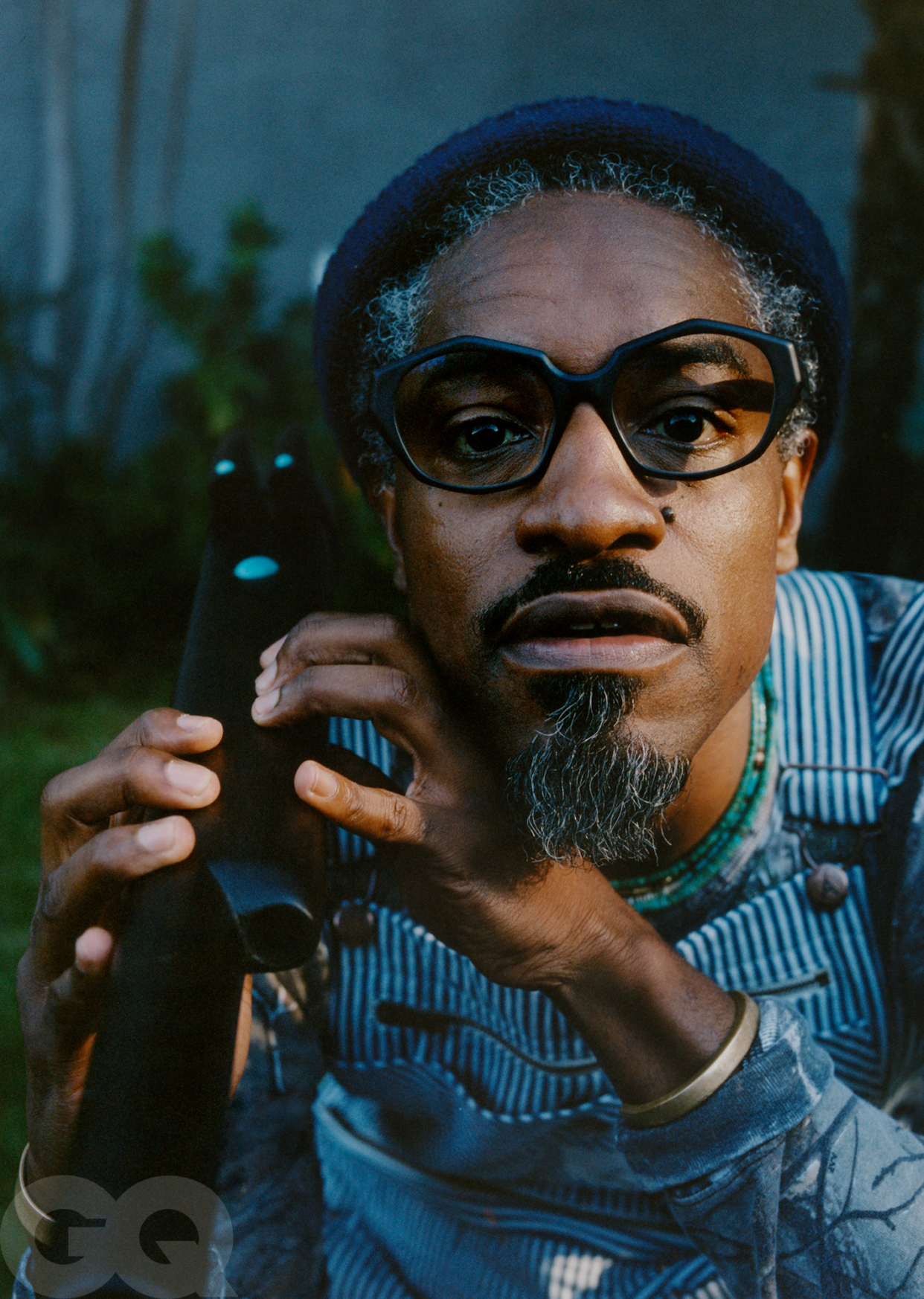
Introducing the first-ever GQ Video Cover Story, a new format that delivers all the access and depth of a classic GQ print profile—but does it via longform digital video. For our inaugural Video Cover Story, we’re proud to unveil this 34-minute immersive feature on André 3000. Watch the video, reported by GQ’s Zach Baron and directed by Noel Howard, in its entirety above, and read the accompanying profile from our 2023 Men of the Year issue below.

When André 3000 was a kid, he used to get on his knees and recite what he called the Rapper’s Prayer, which was what it sounds like it was: Lord, we just want to be good rappers. Then he grew up a little and, with his friend Big Boi, who used to kneel and pray beside him, formed OutKast. OutKast turned out to be more than good—the group was great, among the greatest of all time. This year, the duo’s fifth album, 2003’s Speakerboxxx/The Love Below, was certified platinum for the 13th time, making it the best-selling rap album in history. André has been wrestling with the consequences of that childhood prayer ever since it was answered. “That’s life: You want what you want until you don’t want it,” he says, laughing a little. “I don’t regret any of that, but it’s kind of like now that I’m at a certain level, I miss certain things about normalcy.”
That’s why he comes here, to this laundromat on the Westside of Los Angeles, not far from his house in Venice. One of the reasons, anyway. “It gives me a chance to be out in the world,” he says. (Another reason: The industrial washers and dryers are faster than the ones he has at home.) The other customers notice him but don’t recognize him, usually. “I’m older now, so a lot of people, they see me: ‘You look like him, but nah, that ain’t 3000.’ ”
I am less than sure about this—very few people in human history have looked like André 3000, who at 48 still has the handsome face and lean-closer voice that he did when he was 19, and though his present daily uniform of overalls over a camouflage shirt is perhaps less flamboyant than what he wore during the height of his fame, it’s still overalls over a camouflage shirt. Plus, he usually carries a flute with him, to play in the alley out back while he waits. “I play everywhere,” he says. “If I’m waiting on a cup of coffee, if I’m just outside of my car—I take my flute pretty much everywhere I go.” Perhaps you’ve seen videos: André wandering an airport, or the streets of Philadelphia, coaxing out eerie melodies from a variety of wooden instruments.
In November, André will release his first new record since the last OutKast one, 2006’s Idlewild. It is called New Blue Sun. There is no rapping on it. There are, in fact, no identifiable vocals at all: It is a record built almost entirely around woodwind instruments, full of long, winding songs with long, winding titles. It’s a delicate, whimsical document—New Age music for an age that hasn’t quite dawned yet. André recorded it here in Venice, at a few different studios with a handful of other session musicians, last year. The recordings you hear are more or less improvisations: everyone’s first time through the song.
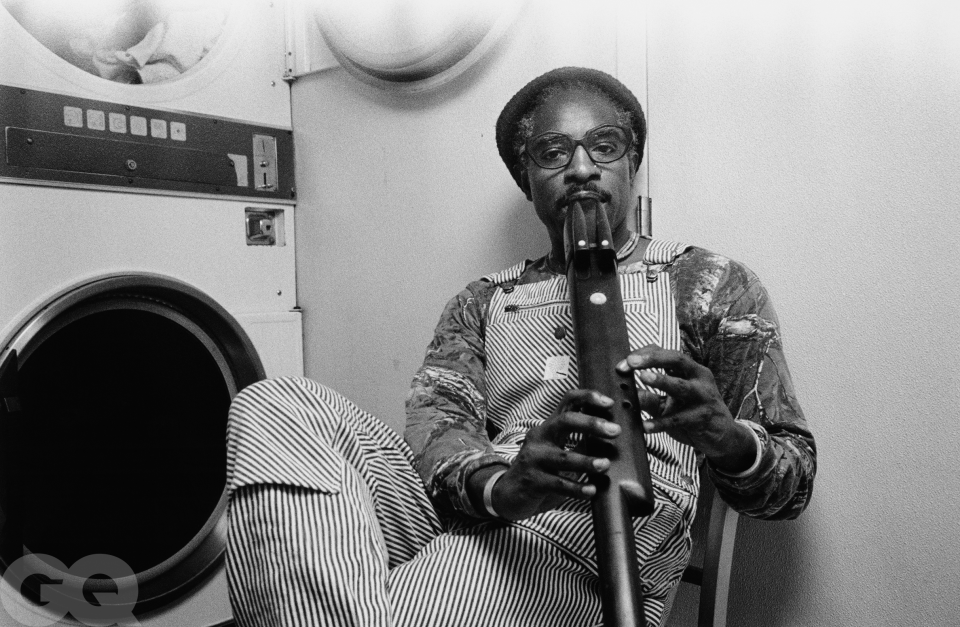
Ask him why a woodwind album—and people do—and André 3000 will respond, characteristically, by asking, “Why anything? Why did we record these albums before in my career? It is just kind of: Those are the things that came.” He is aware that people expect something else from him. Or: don’t expect. They want. Millions of people, in fact. They would like to hear him rap. It’s right there, acknowledged in the title of the first song on the record: “I swear, I Really Wanted To Make A ‘Rap’ Album But This Is Literally The Way The Wind Blew Me This Time.”
And he did try, he says. “I’ve worked with some of the newest, freshest, youngest, and old-school producers. I get beats all the time. I try to write all the time.” But rap is not what comes. “Even now people think, Oh, man, he’s just sitting on raps, or he’s just holding these raps hostage. I ain’t got no raps like that. It actually feels…sometimes it feels inauthentic for me to rap because I don’t have anything to talk about in that way. I’m 48 years old. And not to say that age is a thing that dictates what you rap about, but in a way it does. And things that happen in my life, like, what are you talking about? ‘I got to go get a colonoscopy.’ What are you rapping about? ‘My eyesight is going bad.’ You can find cool ways to say it, but….”
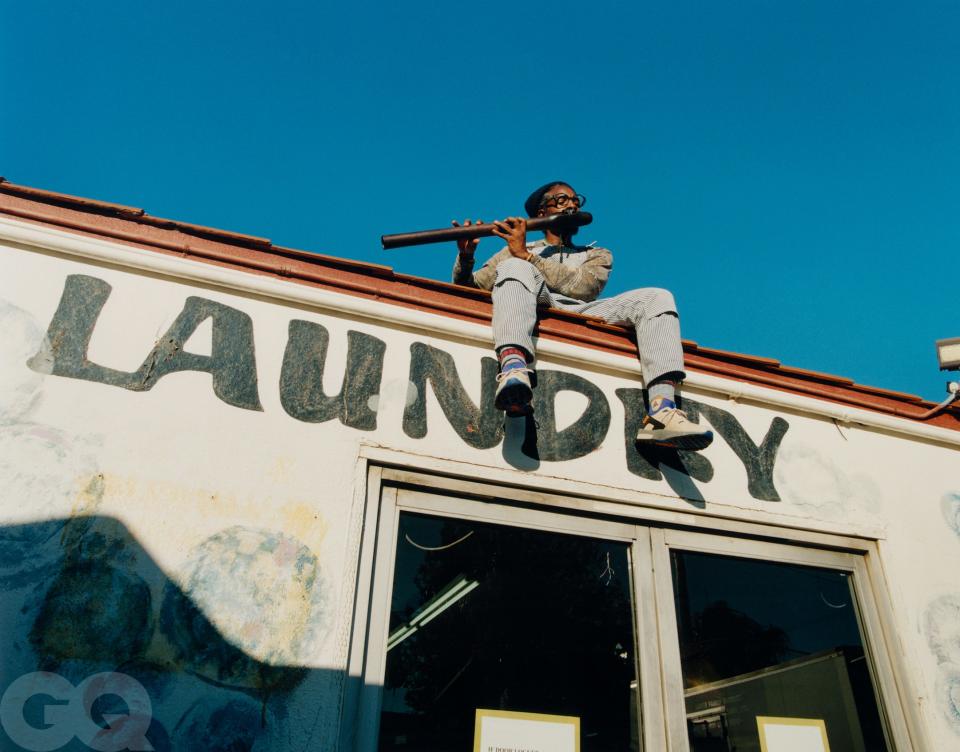
In his life, André 3000 has lost both parents. He’s sent a son off to college. He’s known loss and love and fame. He has a partner, in Big Boi, who would get back onstage with him tomorrow, to continue where OutKast left off, and every day André decides again not to do that. “And those are real subject matters. I jot down what’s going on in my life. But to make it into an entertaining song to where it’s just not self-serving or it’s not just—like there’s a part of entertaining someone else too.” He tries, but it’s not there when he looks for it. “And what’s that saying with recovering addicts? They say, ‘The longer I’m out of it, the better chances I have of staying out of it.’ ”
“I get beats all the time. I try to write all the time. People think, Oh, man, he’s just sitting on raps, or he’s just holding these raps hostage. I ain’t got no raps like that.”
In theory, André says, yes, the genre is big enough to encompass old age. To encompass colonoscopies and eye exams and grief and everything else. OutKast made their name expanding the possibilities of the genre, talking honestly about everything in their lives, good, bad, or indifferent. “But look at the greatest boxers now,” André says. “What do they do? They do exhibition fights every now and then, but they’re not stepping in the ring. You know what I mean?”
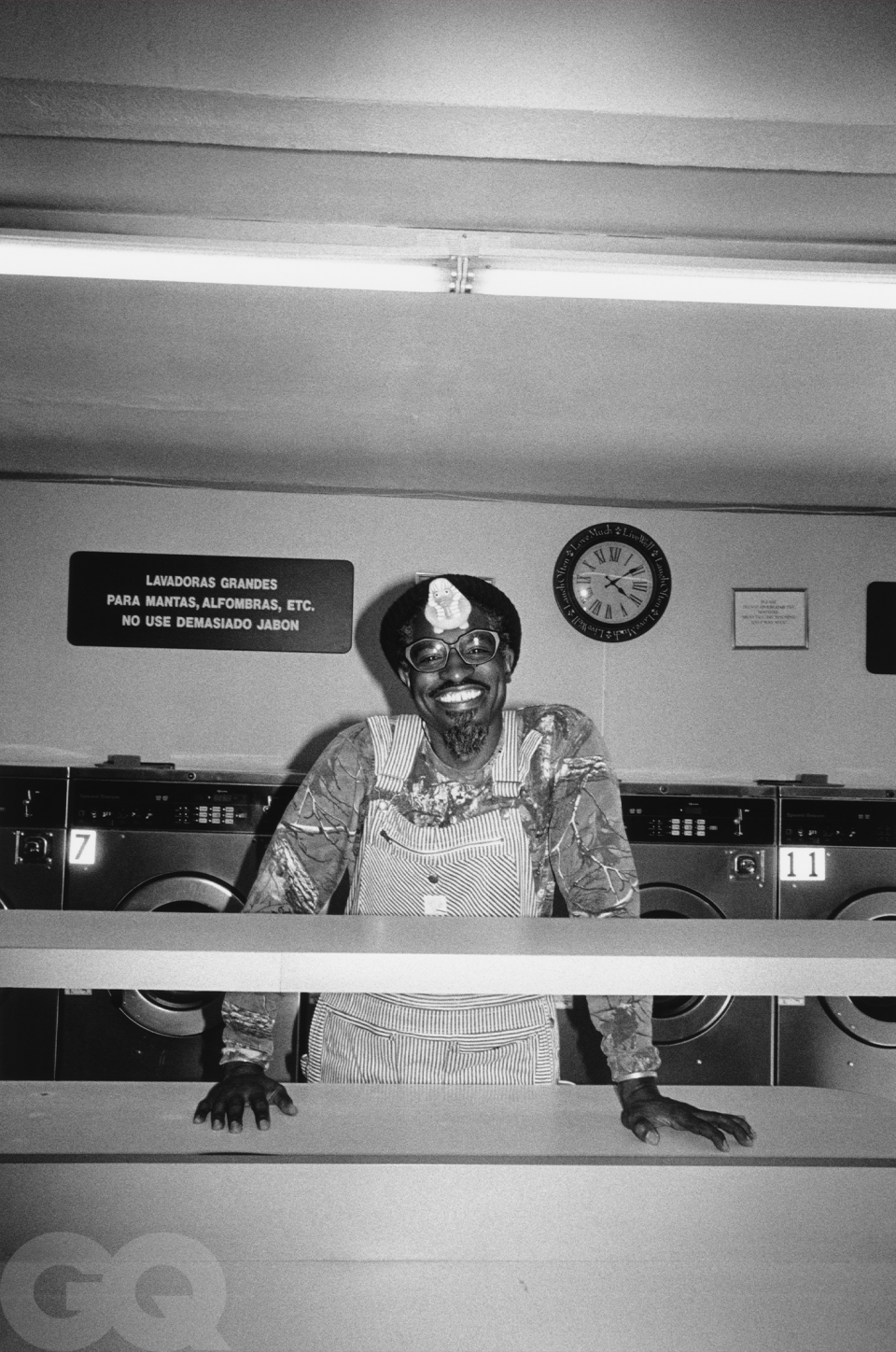
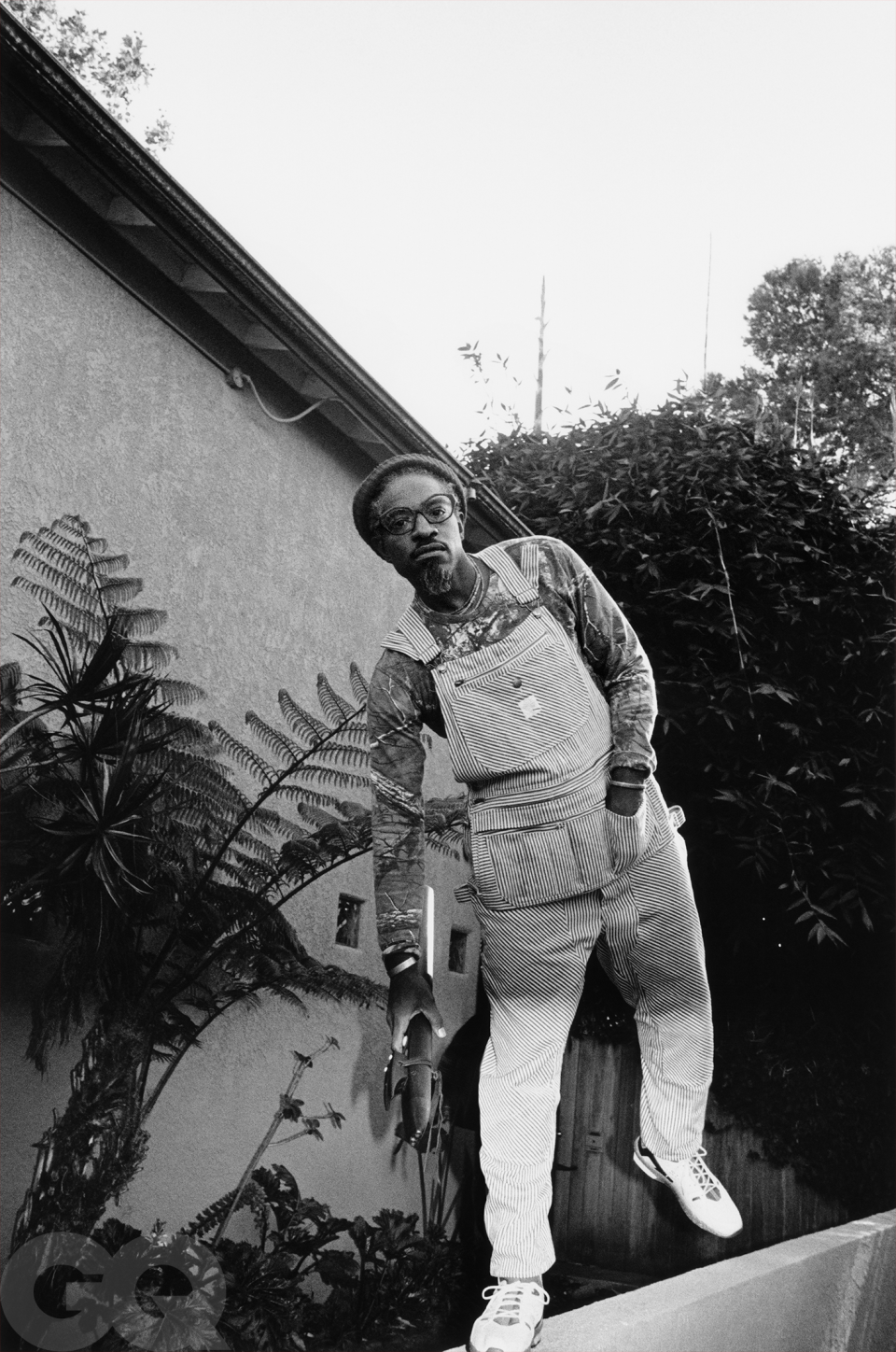
There is a kind of mythic air that sometimes floats around André 3000, an affectionate but slightly dehumanizing impression that he is a whimsical sprite who emerges from time to time to practice mischief. Perhaps it’s worth saying that this is not at all how he sees himself. What he is, is sincere: He cannot help but do whatever he is compelled to do, even if it doesn’t make sense to anyone else. For instance: Why does he play his flute in public? Because he prefers practicing to checking his phone. But then people film him, and those videos go viral, and it becomes something else, a competition to find and document whatever he’s up to in public. “It kind of made me more self-conscious,” he says. “Because it became kind of like a game.”

But it is awesome, in any number of expected and unexpected ways, to spend time around the guy. In the laundromat, after his clothes are loaded in the washing machine, he hefts his flute, invites me to come hear him play it in the California sun, and so I spend a dazzling 15 minutes outside in an alley, listening to the quiet rush of nearby traffic and the hollow, playful sound of André finding his way through something new.
On his overalls is a small drawing that he did of ants spiraling around a flute. This turns out to be the logo of the workwear brand he is developing, which he has decided to call From Now On, They Will Have No Choice But to Call Us The Ants. Increasingly, André says after we’ve gone back inside, this is what he’s up to: doing anything but making rap music. He is planning a store called A Myriad of Pyramids, which will sell clothes and artwork. Having built one immortal legacy with OutKast, he’s begun to think about others. “I’d like to make things that when I’m dead and gone 3,000 years from now, people may dig up and find. So if that’s sculpting, if that’s actually physical artwork, painting, designing instruments, that’s where I’m at right now.”
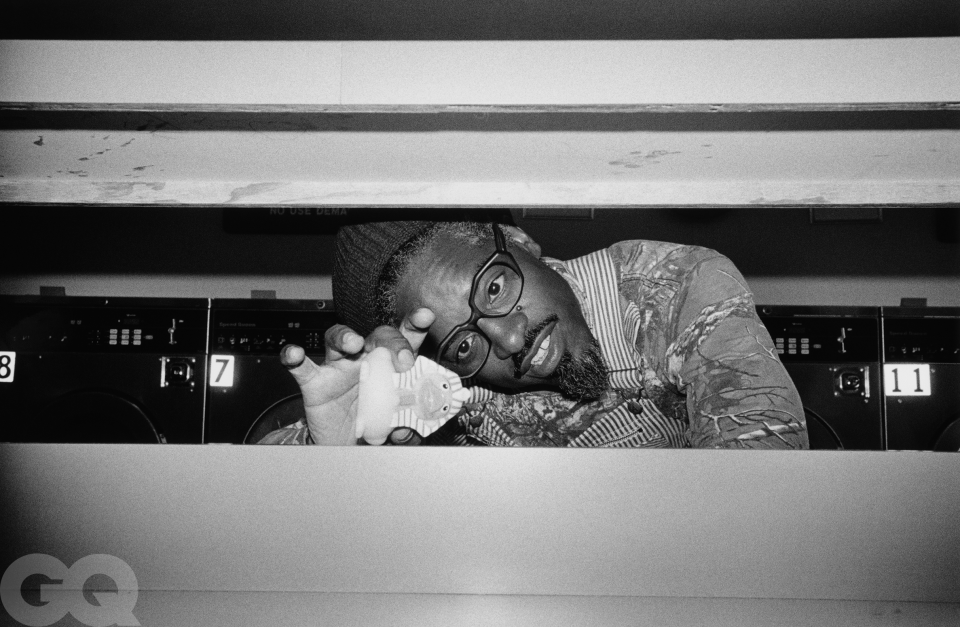
In some ways, it was OutKast, in retrospect, that was the aberration in André 3000’s life, he says. “I’m almost going back and digging up something that I kind of abandoned before. Right before OutKast, I was supposed to go to art school.”
André is compulsively honest, and eager to talk about just about anything; OutKast is the one subject that occasionally leaves him short of words. He thinks warmly about the early days of the group and has more complicated, harder to express thoughts about its pinnacle. What happened to him and Big Boi is still mostly a blur. “It happened so fast,” André says. “Sometimes I don’t even remember what cities we performed in.” At some point, the duo stopped playing shows, and then they stopped putting out records. In 2014, OutKast reunited for Coachella and an ensuing tour—André can still recall the first night, how strange it was, being back onstage, in front of thousands of people, not to mention Paul McCartney and Prince, who called the next day to reprimand André for checking out of the show, halfway through. “ ‘You know what your problem is?’ Prince asked. And I’m like, Fuck. He said, ‘You don’t realize how big y’all are.’ And then he was like, ‘You got to remind people who you are.’ And from that point on, I was like, Okay.” The shows went notably better from there.
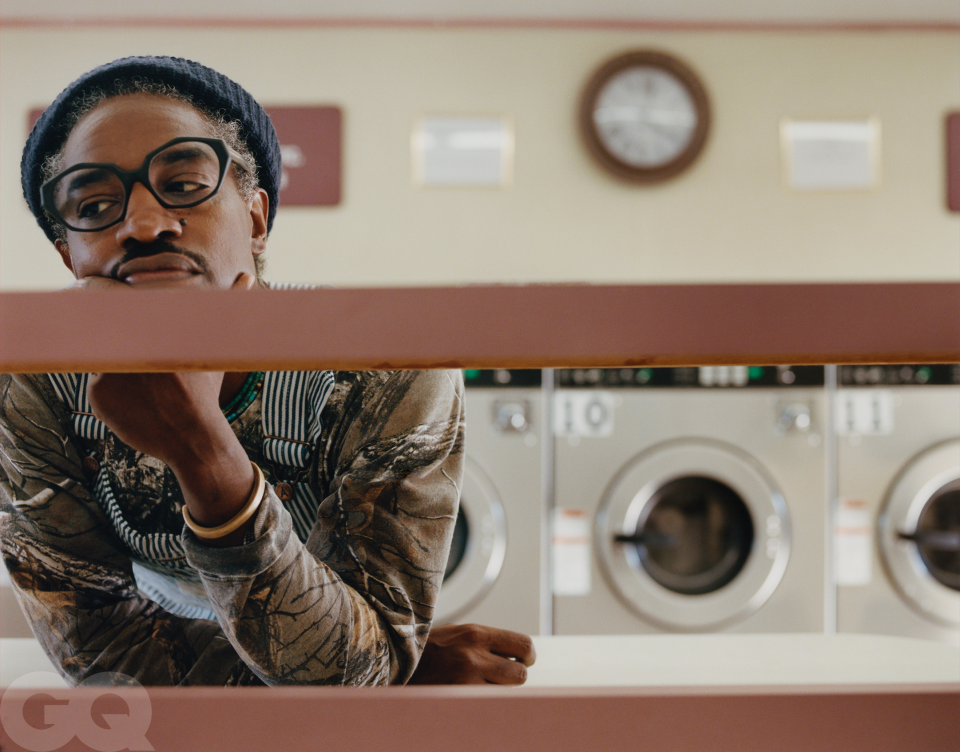
Still, OutKast hasn’t played a concert or released a song since. “There’s a certain chemistry that me and Big Boi had and have,” he says. “I think over time, people don’t understand that chemistry changes.” After the reunion, André went back to doing what he was comfortable doing, which was being on his own. Some people might struggle to figure out who they are, outside the group that made them famous, but it was more or less the opposite for André. “I mean, there’s been so many times in my mind where I thought I was done. So it wasn’t even a struggle. It wasn’t like, ‘What am I going to do now?’ Even during all of this, I remember a couple weeks ago talking to my manager and publicist, I really had to ask myself, ‘Do I want to be famous again?’ ” The answer was: no. “But at the same time, I want to promote the music.”

In the past, André 3000 has spoken openly about having social anxiety. “And it never goes away. It’s not like a cure-all kind of thing. It just becomes a part of life and you just have to take a deep breath, smile a little bit, and just get through it for tomorrow. That’s the best I can say.” But it’s also safe to say that fame, and attention, exacerbate the condition for him. He has never quite known what to do with the attention, with people filming him, coming up to him on the street.
He has talked about this with a therapist, at times, how his gift lives so close to the thing that makes him unhappy. “He was like, ‘Well, son, the thing that makes your art what it is, is the thing that you don’t like either.’ So it’s like, Fuck, what am I going to do?”

What are you going to do?
“I don’t have a choice. It’s not like I can change it. Just kind of rock with it.”
Well, I mean, I guess the dramatic version would be, “Oh, I’d give up the gift to get free.”
“I’ve been through that too. But it’s not up to me.”
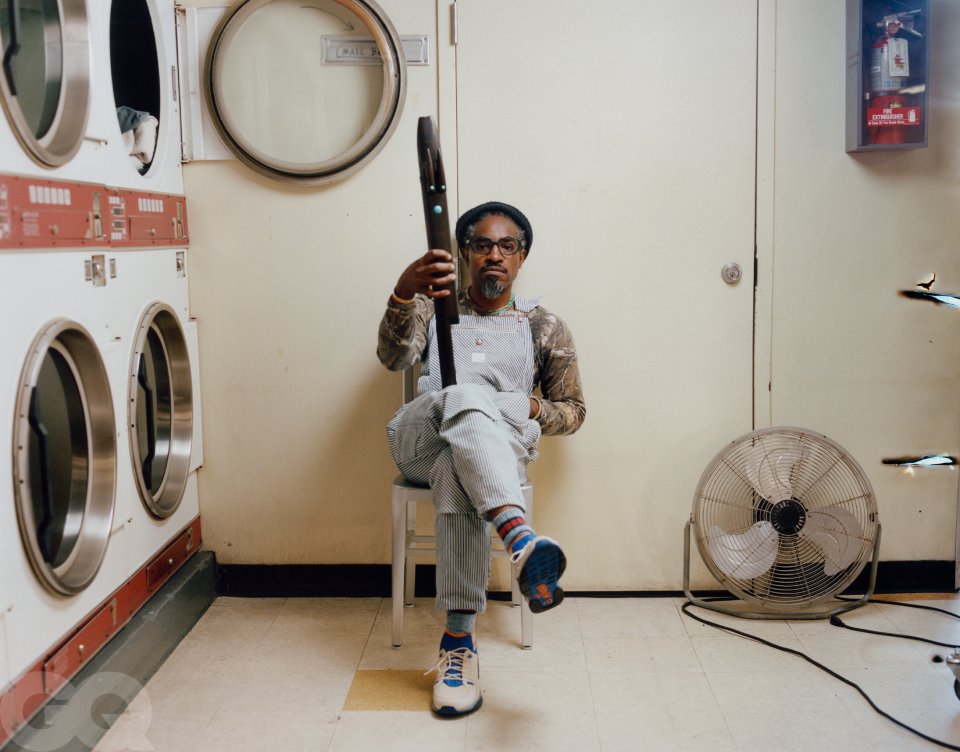
New Blue Sun is many things, but one of those things is maybe an attempt to change the terms of the conversation. To—in a very André way—turn the game into an entirely different game. “I just think it’s a stepping stone,” he says. When expectations become suffocating, defy expectations. “I’ve played it for certain friends,” André says, “and depending on who they are, you get certain reactions. So I know that’s how the world will react too. But it’s all positive. It’s kind of like: You may get someone that cries. You may get someone that immediately starts to do yoga. You may get someone that goes to sleep. Then you got the homie that be like, ‘Y’all gon’ put some beats on that shit?’ You get it all, man.”
André says he is used to his friends not always liking his music. Once, he says, he played “Hey Ya” for someone close to him. “He said, ‘Man, if you put that out, your career is over.’ In my mind, I’m like, ‘Damn. But I like this shit!’ So I like to get different opinions. I’m never unaware. I’m never oblivious. And I’m always aware of how people will take it.”
But he also can’t help but do what he wants to do, even if it’s not what other people want him to do. New Blue Sun is not intended to be a provocation—if anything, it’s the opposite; it’s an attempt to connect, to narrow the distance between the massive, abstract legacy of OutKast and the more humble, daily reality of André 3000. But it’s certainly not what people are anticipating. “It could end right here,” André says. “But then that might be a blessing too. I’d be all right. I’d know that, man, you put your time in and did what you wanted to do. That’s all you can ask for. It’s like, I’m not tripping. I mean, I’ll go and draw and paint or something.”
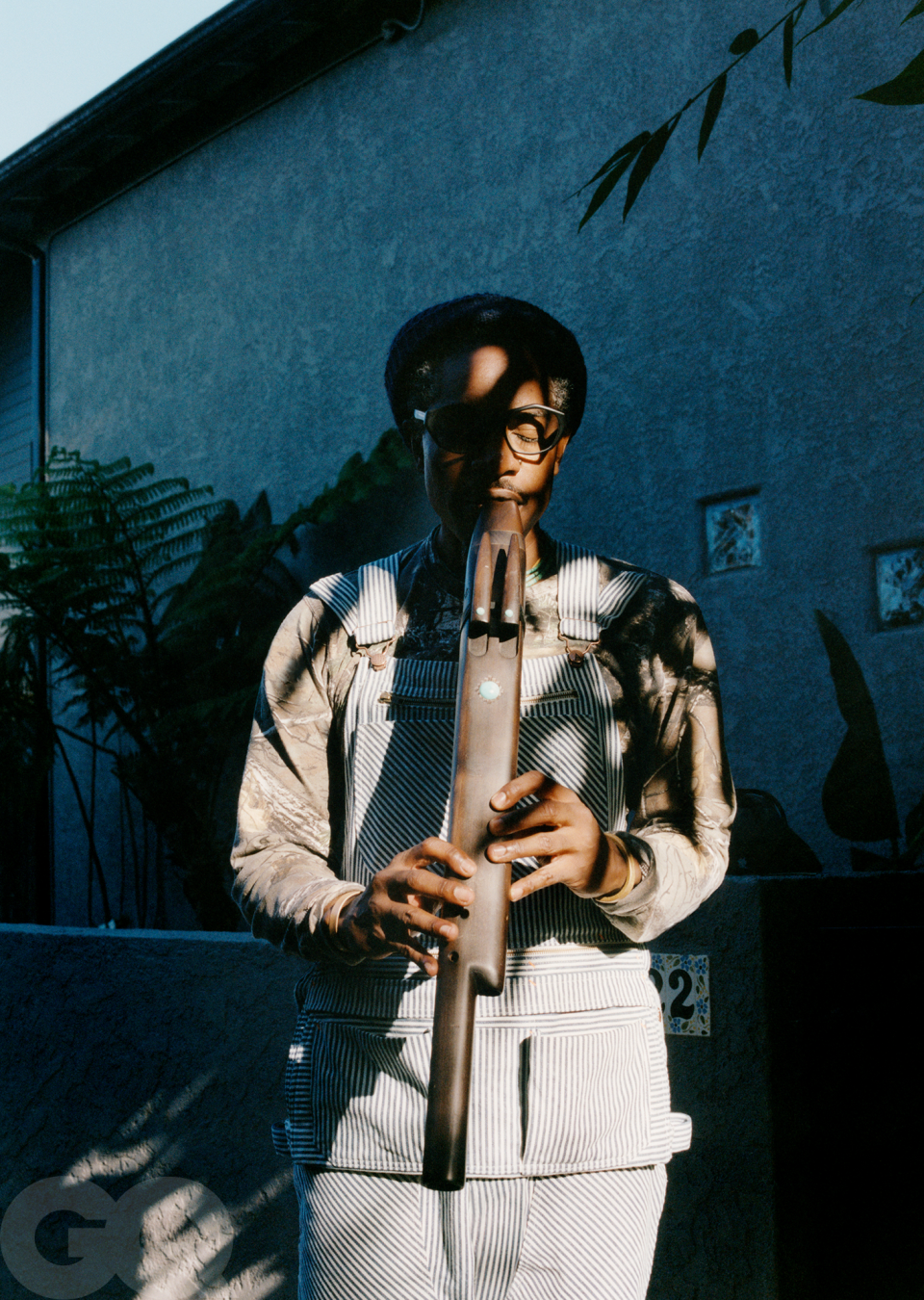
Zach Baron is GQ’s senior special projects editor.
A version of this story originally appeared in the 2023 Men of the Year issue of GQ with the title “André 3000 Is Back and He Brought His Flute”
Subscribe to GQ >>>
PRODUCTION CREDITS:
Photographs by Renell Medrano
Grooming, Iman Thomas/Dion Peronneau
Produced by Annee Elliot Productions, Los Angeles
Location: Wash & Dry Laundromat, Los Angeles
VIDEO CREDITS:
Director: Noel Howard
Director of Photography: Carter Ross
Editor: Phil Ceconi
Talent: André 3000; Zach Baron
Producer: Sam Dennis
Senior Producer: Annee Elliot
Line Producer: Jen Santos
Production Manager: Andressa Pelachi; Kevin Balash
Talent Booker: Dana Mathews; Ernesto Macias
Camera Operator: John Weselcouch
Assistant Camera: Caroline Vazquez; Raquel Wajner
Gaffer: Jon Corum
Grip: Matt Krueger; Dominik Czaczyk
Sound Mixer: Kari Barber
Production Assistant: Fernando Barajas; Masana Cornish; Brock Spitaels; Paul Draper; Robby Fiore; Micky Hohl
André Groomer: Iman Thomas
Zach Groomer: Vanessa Rene
Production Designer: Cedar Jocks
Post Production Supervisor: Rachael Knight
Post Production Coordinator: Ian Bryant
Supervising Editor: Rob Lombardi
Assistant Editor: Billy Ward
Designer: Michael Houtz
Originally Appeared on GQ

